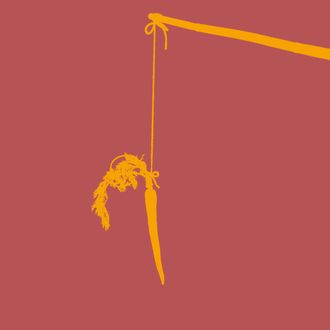
Students in Vassilis Dalakas’s consumer-behavior class last fall didn’t know it at the time, but they were the subjects of a clever experiment studying the psychology of motivation. Dalakas wanted to explore a question pondered by many a college professor: What is the best way to get these kids motivated to do their work?
Dalakas, a professor of marketing at California State University San Marcos, offered optional pop quizzes in both sections of his consumer-behavior class. If students did well on a quiz, they earned a point; if they did poorly, though, they lost a point. If they gained five points over the course of the semester, they could earn the right to opt out of the final exam.
The trick, however, was this, Dalakas writes for the Conversation:
In the first class, the students were told that the final exam was required but they could earn the right to not take it with five points from the quizzes. In the second class however, they were told that the final exam was optional. But, they could lose that right if they did not get five points from the quizzes.
So the difference was in the framing: The right to opt out of the final was either something to gain or something to lose.
Both classes had about the same number of students, learned the same material, earned about the same grades, and, of course, learned from the same teacher. But the outcomes were remarkably different. In the first class — where students were given the opportunity to work toward the right to opt out of the test — 43 percent of the students scored the five necessary points. But the second class — again, where the right to opt out of the final exam was presented as theirs to lose — had a much stronger showing at the end of the term, with 82 percent of students eligible to claim their right to skip the final exam.
When Dalakas surveyed his students, a theme emerged. “I didn’t want to give it up,” one student told him about the right to an optional final. Dalakas explains his findings with the behavioral-economics phenomenon called loss aversion, or the idea that our annoyance over losing something is stronger than our joy over gaining something. Dalakas uses the example of a $20 bill: You’d probably be peeved if you discovered you’d somehow lost 20 bucks. If you’d found a $20 bill lying around, on the other hand, you’d be happy — but the strength of that emotion would be milder than if you’d lost it.
A study published last summer by researchers at Washington University in St. Louis echoes the results of this little classroom experiment, finding that even mild losses are more effective at influencing behavior than rewards. “Our study showed that such feedback does not have to be harsh, since it appears that we tend to react in the same manner to any amount of negative feedback,” lead author Jan Kubanek said in a statement. “From an evolutionary perspective, people tend to avoid punishments or dangerous situations. Rewards, on the other hand, have less of a life-threatening impact.”
Dangling
a carrot — “Finish that task and you earn this reward!” — might actually be the
exact opposite of what you should do to improve people’s motivation. Instead, it seems to be more effective to make them aware of what they could lose instead. (And this will likely work when you’re trying to improve your own motivation, too.) As
Dalakas writes, “It seems a bit harsh, but it may also be more effective.”




